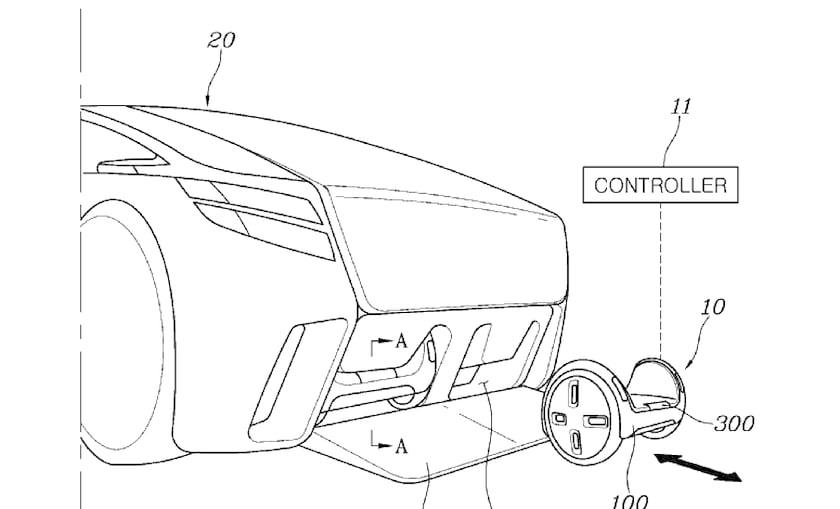Today, car companies are not just car manufacturers, but also consider the specific issues of travel. With the advent of dedicated EV platforms, scalable skateboard architectures can be seen in a wide range of applications such as cars, off-road vehicles, and delivery vehicles. Volvo even invented the electric scooter.

(Image source: carbazz)
According to foreign media reports, Hyundai Motor Company's plan for the future of electric vehicles is to create a world that does not require walking, that is, all travel is done through one set or another set of wheels. Recently published patent documents show docking stations hidden in the rear bumper system of motor vehicles, where electric personal mobile devices (often called hoverboards) can be parked and charged while the user is driving, and then used after parking.
The concept is simple. When users enter the city, they can park their car in the regular parking lot. However, considering that this is a future technology, assume that it is automatic parking. Then, turn on the rear bumper system and expand the hoverboard. Users can then take advantage of the device to easily complete the last mile or so without having to walk. This is in line with the car-free vision of the city center of the future, helping to reduce pollution, as well as the risk of accidents in crowded city centers.
The patent sketch shows not hyundai's currently produced model, but its split taillights are reminiscent of the Genesis GV60. The lower part of the rear bumper system folds down to form a ramp, while the system has two cutouts inside the system so that the user can access the hoverboard. The patent also describes the different types of mobile scooters that can be used, one of which is similar to a Segway scooter with a shaft built into the body, and a four-wheeled basket that can help transport purchased goods. The mobile device will come with a GPS device that will automatically open when the user approaches the car. The patent also introduces a remote control that can be used to move shopping carts, etc.
The future of mobility could mean less activity for users. But if such technology is feasible, it seems that the situations that people see in the movie can become a reality.